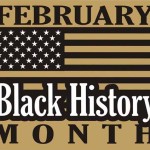As you make your way through your final exams and  papers, don’t forget to return your library books. Students, who checked out non-reserve materials during the Spring 2014 semester, need to return them on or before May 16, 2014 to avoid accumulating fines. Also, remember to return your interlibrary loan books before the semester ends. Log on to your library account with your BLS username and password to check if you have any Brooklyn Law School materials checked out to you, or to see if you have accumulated fines. To check if you have any interlibrary loan items checked out to you, log on to your ILLiad account using the account information you entered when you initially created your ILLiad account. If you have any questions about your library or ILLiad account, please contact the circulation desk at circdesk@brooklaw.edu.
papers, don’t forget to return your library books. Students, who checked out non-reserve materials during the Spring 2014 semester, need to return them on or before May 16, 2014 to avoid accumulating fines. Also, remember to return your interlibrary loan books before the semester ends. Log on to your library account with your BLS username and password to check if you have any Brooklyn Law School materials checked out to you, or to see if you have accumulated fines. To check if you have any interlibrary loan items checked out to you, log on to your ILLiad account using the account information you entered when you initially created your ILLiad account. If you have any questions about your library or ILLiad account, please contact the circulation desk at circdesk@brooklaw.edu.
Category Archives: Uncategorized
Bar Passage List Now Available
Today, the New York Law Journal’s website posted a list of those who passed the February 2014 bar exam administered by the New York State Board of Law Examiners.
New URL for “New EUR-Lex”
On Monday, March 24, there will be an upgrade to the European Union’s legal website, New EUR-Lex, and the URL will switch to: eur-lex.europa.eu. The site’s administrators have noted that New EUR-Lex might be temporarily unavailable on Monday. EUR-Lex provides free access, in multiple official EU languages, to 1) the Official Journal of the European Union, 2) EU treaties and secondary legislation (including consolidated versions), 3) legislative proposals, 4) working papers and 5) EU case law.
Congress.gov Replaces Thomas.gov
For almost 20 years, Thomas has been the official source for federal legislative information. Now, users trying to access Thomas will be directed to Congress.gov.
As of now, Congress.gov is a beta site and will remain a beta site until the shifting of all data sets from Thomas is complete. The full transition is expected at the end of 2014, and at this time Thomas will be permanently retired.
Congress.gov replaces Thomas with a system that includes platform mobility, comprehensive information retrieval and user-friendly presentation. It currently includes all data sets available on Thomas except nominations, treaties and communications. As mentioned above, all data sets will be included by the end of this year.
If you are interested in learning how to navigate the new platform, online training is available. Sign up here.
Black History Month
 To commemorate and celebrate the contributions to our nation made by people of African descent, American historian Carter G. Woodson established Black History Week. The first celebration occurred on Feb. 12, 1926. For many years, the second week of February was set aside for this celebration to coincide with the birthdays of abolitionist/editor Frederick Douglass and Abraham Lincoln.
To commemorate and celebrate the contributions to our nation made by people of African descent, American historian Carter G. Woodson established Black History Week. The first celebration occurred on Feb. 12, 1926. For many years, the second week of February was set aside for this celebration to coincide with the birthdays of abolitionist/editor Frederick Douglass and Abraham Lincoln.
In 1976, as part of the nation’s bicentennial, the week was expanded into Black History Month. Every year, U.S. presidents issue annual proclamations proclaiming February as National African-American History Month. President Obama issued his proclamation on Friday February 1st, and in it said “During National African American History Month, we honor the men and women at the heart of this journey – from engineers of the Underground Railroad to educators who answered a free people’s call for a free mind, from patriots who proved that valor knows no color to demonstrators who gathered on the battlefields of justice and marched our Nation toward a brighter day.”
The Library has many biographies of renowned African Americans in its collection. Below is a selected list.
Thurgood Marshall : race, rights, and the struggle for a more perfect union
Becoming King : Martin Luther King, Jr. and the making of a national leader
Stepping up : the story of Curt Flood and his fight for baseball players’ rights
Rebels in law : voices in history of Black women lawyers
Black Americans in Congress, 1870-2007
Seminar Paper Workshop
![]() On Thursday February 6, Professor Elizabeth Fajans and Librarian Kathy Darvil will host a workshop on how to effectively research and write your seminar paper. The workshop is from 4-5:30 and is located in Room 602. Topics covered included sources for selecting your topic, sources for researching your topic, and how to effectively organize and write your paper.
On Thursday February 6, Professor Elizabeth Fajans and Librarian Kathy Darvil will host a workshop on how to effectively research and write your seminar paper. The workshop is from 4-5:30 and is located in Room 602. Topics covered included sources for selecting your topic, sources for researching your topic, and how to effectively organize and write your paper.
If you are unable to attend the workshop, there is no need to fear. Kathy Darvil created an online research guide to support the seminar. The guide is available at guides.brooklaw.edu/seminarpaper. From the guide’s landing page, you will be able to access a recording of this year’s presentation, Professor Fajan’s slideshow on how to write your seminar paper, and Kathy Darvil’s online presentation on how to research your seminar paper. Also listed and described on the guide are all the resources (as well as several others) that were discussed in the workshop. If you should need further help selecting or researching your topic, please stop by the reference desk for assistance.
New Article on Legislative History
Nicholas Parrillo is an Associate Professor of Law at Yale Law School who teaches administrative law, legislation, and American legal history. He recently published an article in the Yale Law Journal on legislative history, which according to the Legal History Blog, “relates the rise of the use of legislative history to the expansion of the federal bureaucracy and the emergence of a specialized regulatory bar.”
Here is the abstract of his article posted on SSRN:
Drawing upon new citation data and archival research, this Article reveals that judicial use of legislative history became routine quite suddenly, in about 1940. The key player in pushing legislative history on the judiciary was the newly expanded New Deal administrative state. By reason of its unprecedented manpower and its intimacy with Congress (which often meant congressmen depended on agency personnel to help draft bills and write legislative history), the administrative state was the first institution in American history capable of systematically researching and briefing legislative discourse and rendering it tractable and legible to judges on a wholesale basis. By embracing legislative history circa 1940, judges were taking up a source of which the bureaucracy was a privileged producer and user — a development integral to judges’ larger acceptance of agency-centered governance. Legislative history was, at least in its origin, a statist tool of interpretation.
Exam Time Success
With Thanksgiving around the corner, many of you are beginning to finalize your papers and study for your exams. This time of year can be quite overwhelming. But it doesn’t have to be. There are many resources in the library to help you succeed. Listed below are some of the resources. If you have questions about them, please feel free to stop or email (refdesk@brooklaw.edu) by the reference desk.
Study Aids:
- First Year Courses:
- Site provides links to popular study aids for first year courses.
- Upper Level Courses:
- There are a few ways to identify study aids for upper level courses. One way is to search the SARA catalog for the phrase study aid, and then use the filters on the left hand side of the screen to limit the list to items located on Reserve. Another way is to search for a particular series. For example, you could search SARA for West’s Nutshell Series, the Understanding Series, Sum and Substance, Concise Hornbook Series, or Examples and Explanations.
Legal Writing and Citation Tools:
- Legal Writing & Analysis:
- Site links you to resources to help with legal writing and analysis
- Legal Citation:
- Site links you to legal citation resources
Other Tools for Success:
- Exams on File:
- Link provides access to past exams
- Study Room Reservation:
- Except during the reading and exam periods, the policy for the use of study rooms is as follows: Rooms may be used by two or more students for up to four hours per day. Rooms that are not reserved may be used on a first-come, first-served basis, but students who have reserved a room have priority over students who are using an empty room without reserving it. Use the online Study Room Reservation System to reserve a room. During the reading and exam periods, students on must reserve study rooms. Groups of two or more students may reserve one library study room for up to four hours per day. No student may reserve a room for individual use.
Thanksgiving Weekend Hours
Umbrellas Available for Checkout
For when New York City has more rain than shine…umbrellas are back and available to borrow in the library! We have been fortunate enough to receive replacements for the original Bloomberg umbrellas, courtesy of LexisNexis. There are currently 6 umbrellas that can be checked out from the library’s Circulation Desk for 24 hours. So the next time you see rain pouring down as you leave class for the day, stop by and borrow one – you can bring it back the next day.
In addition to umbrellas, remember that we have lots of useful things available to borrow besides books – USB drives, laptop locks, headphones, and dry erase markers. If you have suggestions for other items you might be interested in having available for loan in the library, please let us know.



